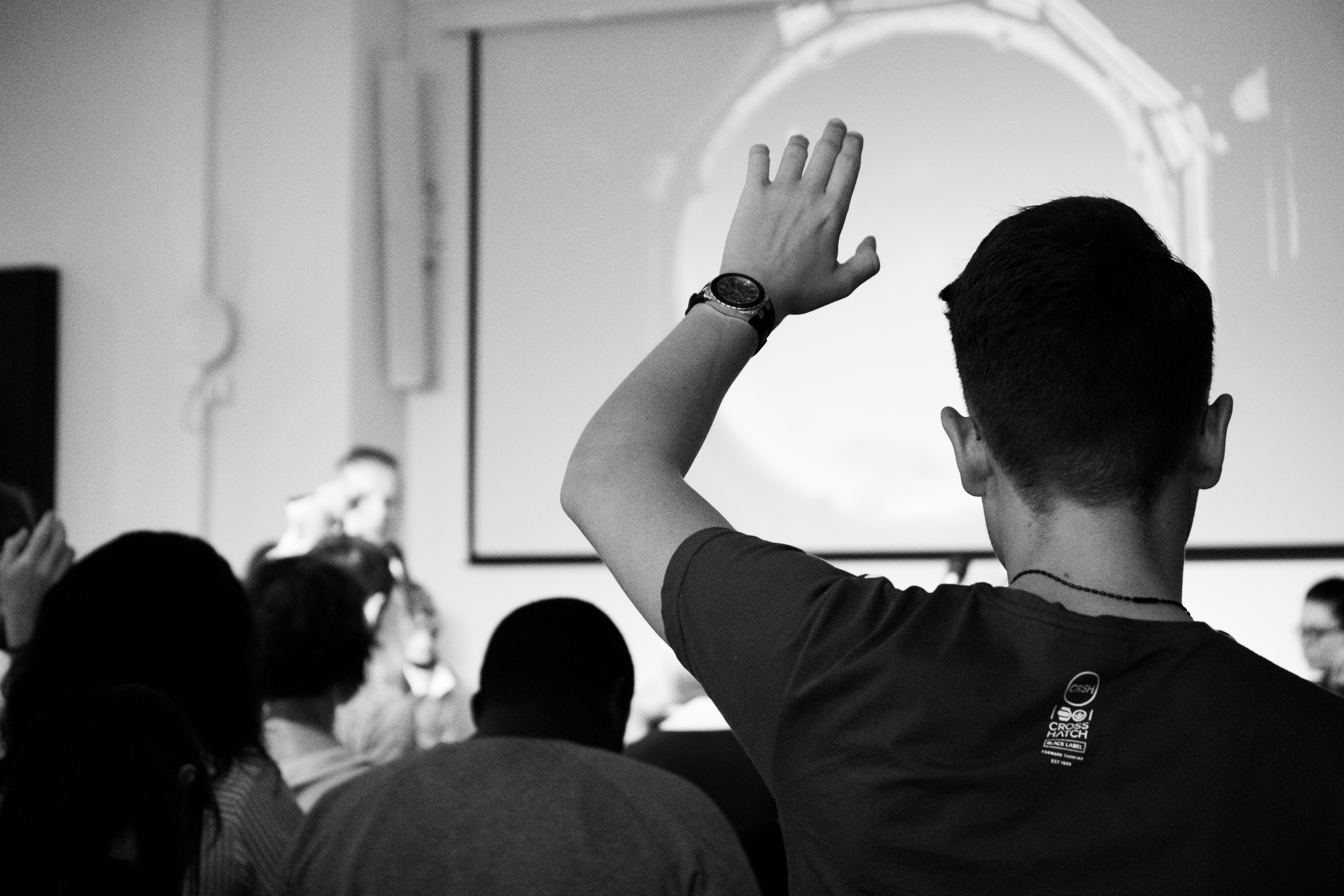Panel discussions are a great way to spark debate and encourage some back and forth conversation. Both organizing and hosting these events can, however, be tricky. So we want to help guide you through some dos and don’ts of panel discussions.
What is a panel discussion?
As the name suggests, panelists - often industry or subject experts - discuss and debate set topics while audience members and moderators have the opportunity to ask their own questions to gain more insights and reflections. Discussion and debate is the name of the game and hearing these expert opinions and audience inquiries is the way to spark the conversation.
Why are they important?
Bringing together experts who hold differing, and possibly conflicting opinions, can be the perfect way to spark a healthy debate and to encourage, not only some critical thinking, but to provide audience members with a variety of differing viewpoints and perspectives.
This is unlike a presentation or a speech where one perspective is offered and possibly challenged. Here the audience will have the opportunity to listen to numerous people offer their opinions and form their own thoughts on the subject matter.
So now that we have answered those important questions it’s time to move on to some helpful tips that will help you organize and run your next panel discussion. The ultimate goal should be to host an insightful and thought provoking event. So let’s see what you can do to make sure your panel discussion is just that.
- Preparation
- The Speakers
- Remember- It’s a discussion
- Moderating
- Q&A
- Virtual
Prepare, prepare, prepare
"By failing to prepare, you are preparing to fail." This certainly rings true for these group discussions. Obviously deciding on the topic should be task number one. But also make sure to think about what format the discussion should take, how many panelists you want to invite, how long it will take, what guests you are inviting and where it is going to take place.
The more questions you ask yourself in the beginning the less headaches and problems you will have later on. If you are organizing this event for colleagues or clients, think long and hard about what topics and subjects are relevant as well as what messages you want them to ponder. The last thing you want is people to listen to a discussion they find irrelevant.
Find the right speakers
The point of a panel discussion is to gather together differing opinions and to have experts share their views, their expertise and their beliefs. This works well when each has a different point of view on matters and brings a specific background knowledge to the table. Discussions will be short and fruitless if these experts all sing from the same hymn sheet.
So be sure to diversify the speakers. Obviously you may wish to avoid contentious and mean spirited debates, so research your guests to see if they would match well together or if they could clash over certain issues. Those who have experience in these types of scenarios are usually a safe bet.
Remember this is a discussion, not just a series of presentations
Many that have worked on these panels or been invited to be a panelist know that debate is encouraged. This is not a series of presentations, talks or lectures. Guests should be invited to discuss the topic or topics at hand without the need for long presentations that can unnecessarily take up large amounts of time.
Using some slides is fine but this should be done by the moderator as a way of displaying key information, questions from the audience or some form of icebreaker.

What is your work situation looking like these days?
Speaking of moderating...
Understand the importance of a good moderator
Successfully moderating a panel discussion is not easy. This is especially true when the topic of conversation is contentious or people hold strong opinions on the matter at hand.
All good panel discussions need good moderating. So if you feel up to the task then prepare your questions, your method of time keeping and get ready to start. If you want some advice on moderating then feel free to read more here.

How to transparently moderate presentations
At Mentimeter we always strive to be as open and transparent as possible but we also understand that there is a need to moderate content to make sure that your interactive presentations go smoothly.Otherwise, just like finding great speakers, be sure to do your research and find yourself a great moderator. If you want your event to be a resounding success then offer the role to someone with a wealth of confidence and experience.
Set up the Q&A
As with your expert speakers, let your audience know the running order, how long panelists will debate topics and when there will be time for a questions and answers portion of the event. It is important to make this part crystal clear as you do not want the debate to be interrupted by enthusiastic audience members eager to voice their thoughts and ask a burning question.
Remember too that questions from the audience can be time consuming; moving a microphone around the room, asking them speak louder if need be and reminding them to keep their queries concise and to the point.
A dedicated tool like Mentimeter can help you run a successful Q&A portion though. You can gather questions throughout the event so audience members can submit their questions when inspiration strikes. This can also help keep questions concise and to the point as when given the mic we tend to ramble and over explain.
Make it a virtual discussion
Let anyone log in from anywhere. Remote working is something many of us have become intimately familiar with this past year. As such, the use of communications tools like Zoom and Teams now means that anyone can join from anywhere in the world.
This will require some more organization but by going virtual, or hybrid, then you can invite experts that may not be able to travel and attendees that are likewise only able to join online. Your panel discussion no longer has to be 100% in person, conversely it no longer has to be 100% remote either. You have the option and flexibility to make use of both scenarios to work best for you and your needs.
Now hand it over the moderator and panelists
So there you have it, some simple steps you can take to make your panel discussion a success. Now it’s time for the moderator, panelists and audience to do their thing. Time to sit back and enjoy the discussion.



